The RBA hikes rates for the 12th time. But one recession signal suggests it is already too late.
For the 12th time in 13 months, the Reserve Bank of Australia has hiked interest rates. And for the first time since mid-2012, we have a cash rate above 4% in Australia. Depending on who you ask, that may be too high or not high enough. What is not in doubt is how much the Reserve Bank has hiked interest rates over the last year.
But much like an Avengers movie, everyone just wants to know what the endgame is.
The reaction in financial markets was severe and quick. Rates traders were pricing in just a 20% chance of a cash rate hike this month. They argued a rate hike would come but only after July when the 5.75% minimum wage increase kicks into effect. As of writing, the Australian 3-year yield is up 8 basis points to 3.66% - the highest level since late February.
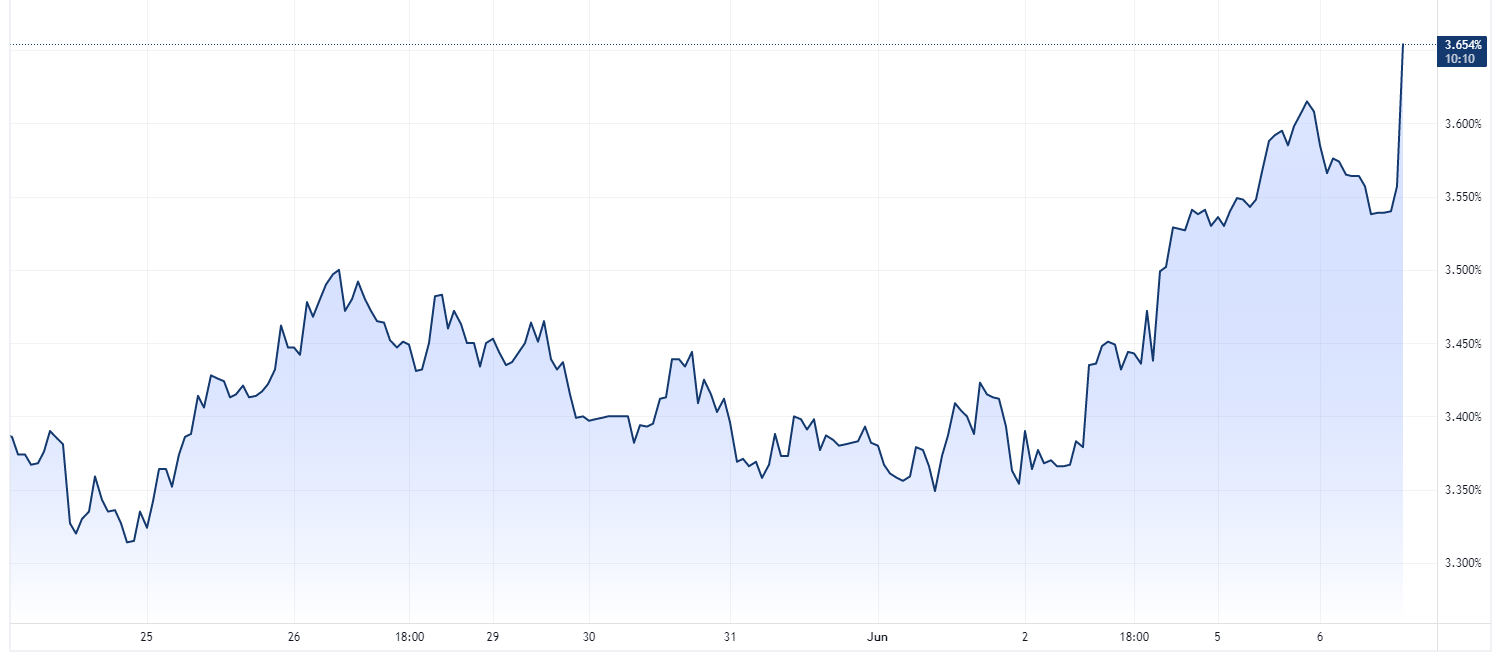
Late Friday, there was also one important development in the bond market. The Australian 2s/10s government yield curve inverted at the close last Friday for the first time since 2008. An inverted yield curve historically has been an indicator of forthcoming recessions and although the correlation has since reversed this inversion, it still doesn't portend good things. The US has had one since July 2022 (and as of writing, is still heavily inverted).
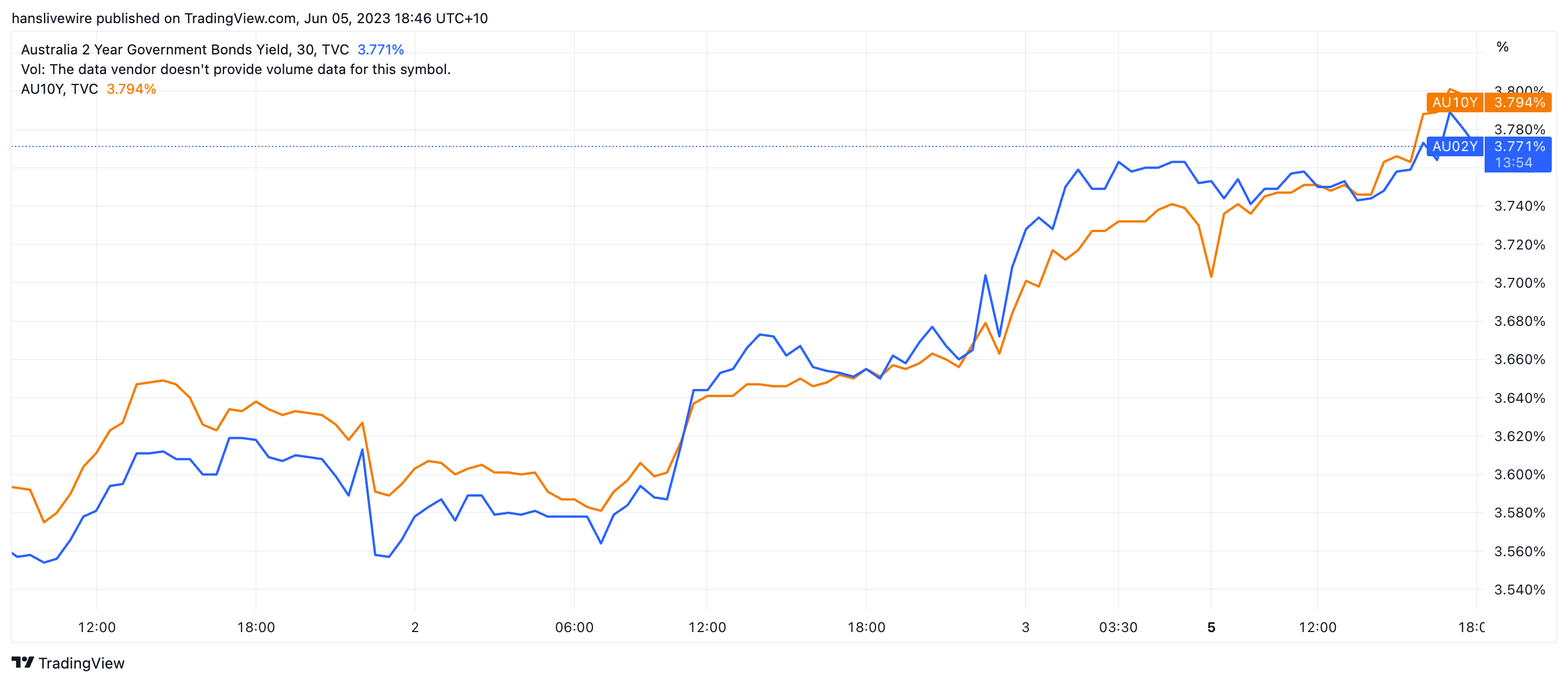
On the ASX 200, it was clear equities traders definitely did not have this hike priced in either. Yesterday's 1% gain has evaporated - and then some.
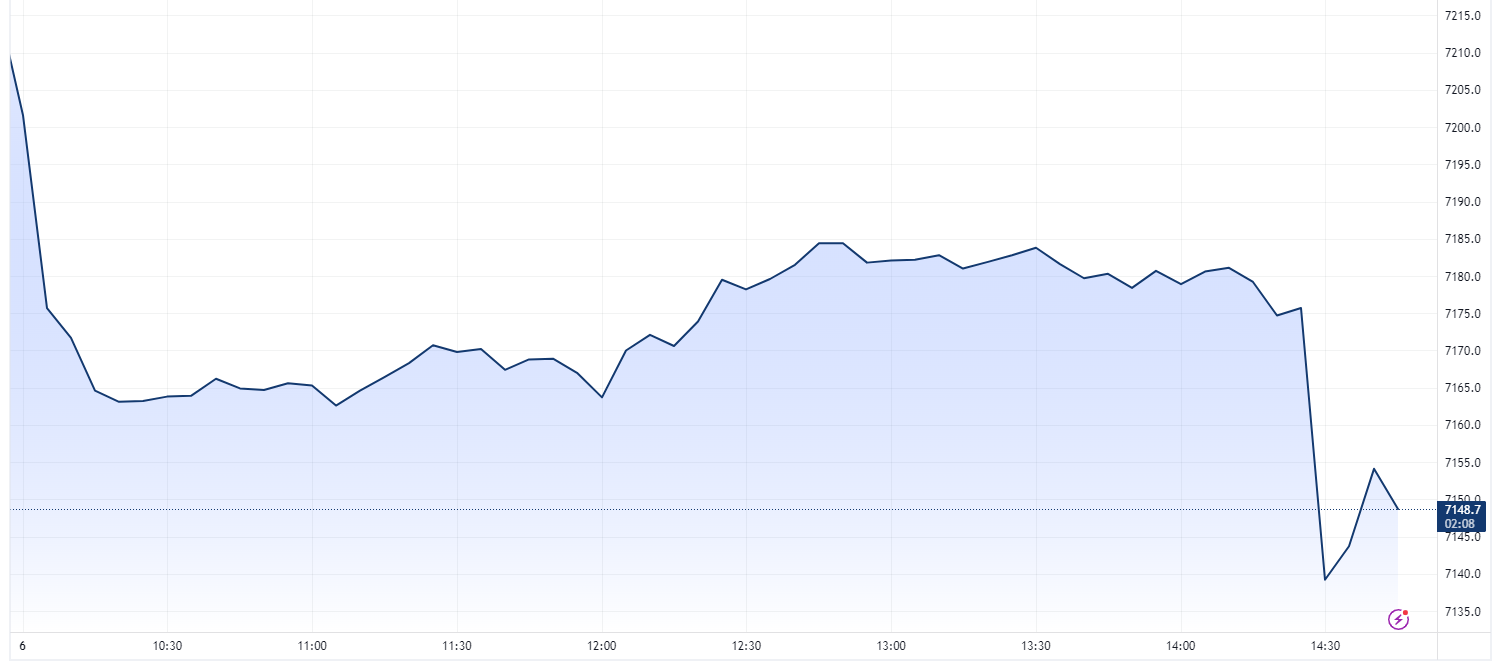
Finally, the Australian dollar spiked on news of the rate hike. Usually, rate hikes cause an appreciation in the currency (whether it lasts is a different question).
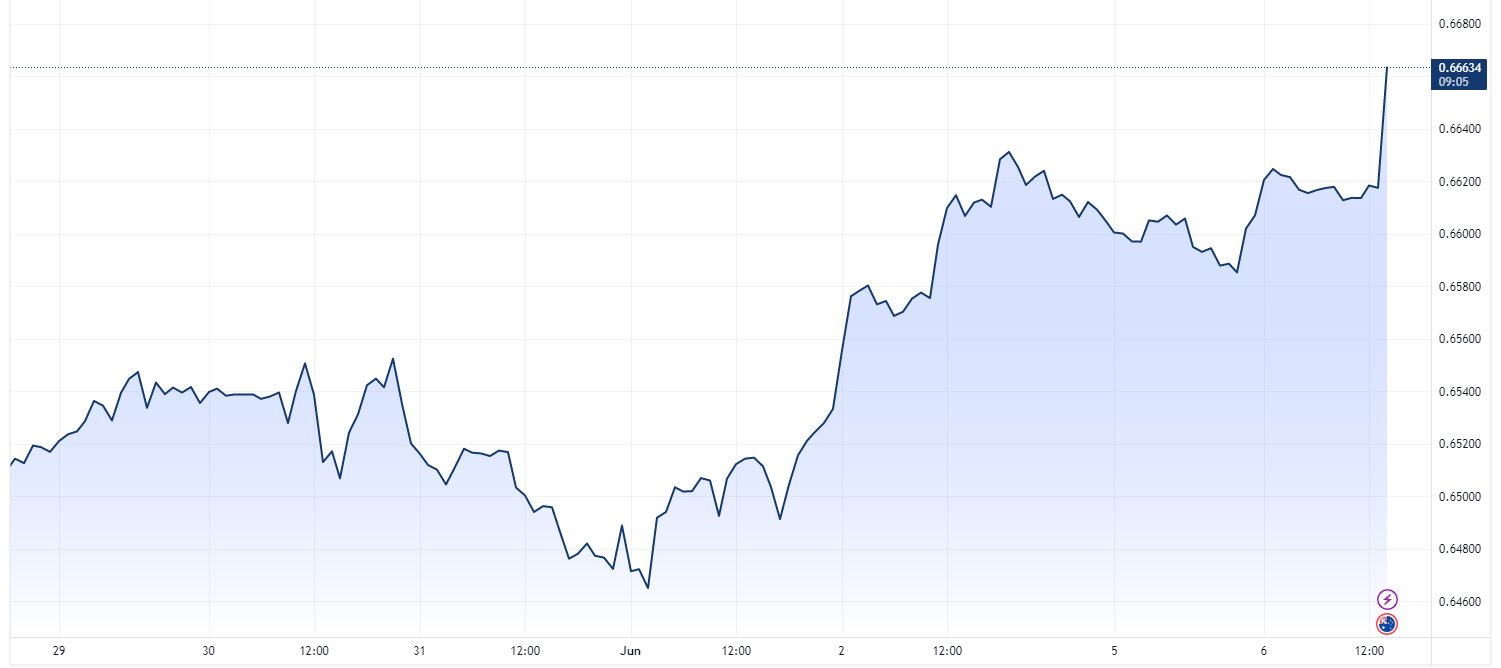
In this wire, I'll take you through the highlights of the RBA's decision and more importantly, the potential future path for interest rates.
RBA monetary policy decision
There are three key quotes investors need to pay attention to:
"This further increase in interest rates is to provide greater confidence that inflation will return to target within a reasonable timeframe."
This part of the statement signals the RBA has one focus and one alone (inflation). A part of the next paragraph doesn't provide much comfort either.
"Recent data indicate that the upside risks to the inflation outlook have increased and the Board has responded to this. While goods price inflation is slowing, services price inflation is still very high and is proving to be very persistent overseas. Unit labour costs are also rising briskly, with productivity growth remaining subdued."
But while today's move is all about inflation, the RBA isn't unaware of the slowdown in other economic indicators.
"Growth in the Australian economy has slowed and conditions in the labour market have eased, although they remain very tight. The unemployment rate increased slightly to 3.7 per cent in April and employment growth has moderated. Firms report that labour shortages have eased, although job vacancies and advertisements are still at very high levels."
And, as any good economist can tell you, the very last line often provides some clues as to where the RBA wants to take interest rates. Notably, it hasn't ruled out more rate hikes to come.
"Some further tightening of monetary policy may be required to ensure that inflation returns to target in a reasonable timeframe, but that will depend upon how the economy and inflation evolve."
What do the economists say?
Before we get to the quotes, here are the Bloomberg survey results for today's decision. 20 of the 30 economists had a pause in today's forecast.
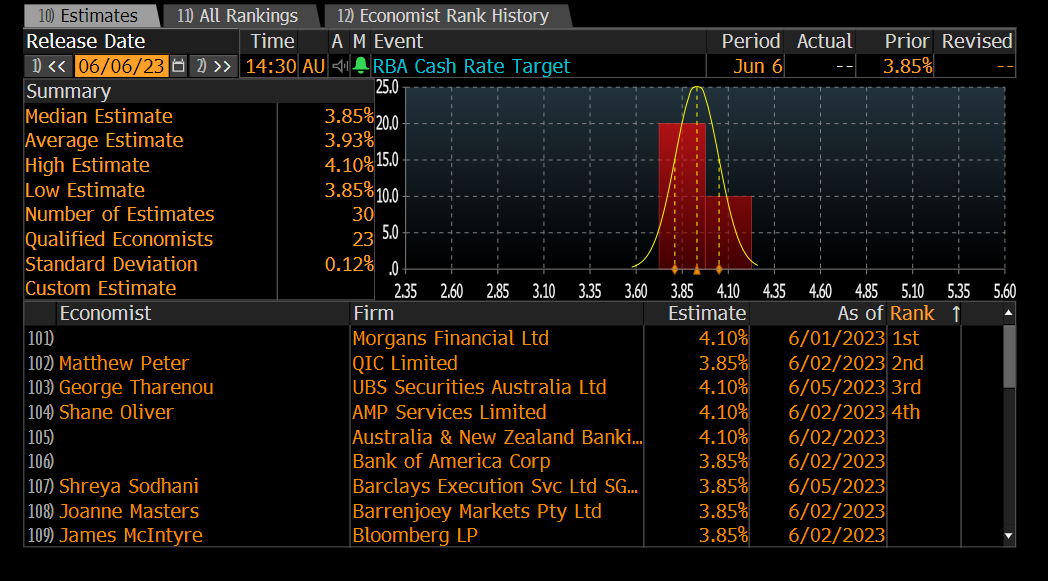
Now, to the professionals.
Gareth Aird, head of Australian economics at the Commonwealth Bank, argued the RBA should not have hiked rates today but did admit the meeting was live. Aird, who was one of the few economists to correctly predict last month's rate hike, argued the recent core inflation data was more encouraging rather than a cause for alarm.
"The bottom line is that inflation continues to decelerate ... We [are] mindful that the RBA Board may place some weight on the change in the annual rate due to its effect on inflation psychology and inflation expectations. But overall, we thought the data was encouraging rather than a cause for concern," Aird wrote to clients this week.
Aird also highlighted a lot of other economic indicators that are worth the RBA's attention. These, when put together, could have made a stronger case for a pause than a hike:
- Unemployment ticked up last month to 3.7%
- Q3 Wage Price Index only increased 0.8% q/q, below expectations
- April retail sales were also well below expectations (flat vs +0.3% expected)
- Building approvals collapsed last month by 8%, now down 24% year-on-year
- Manufacturing PMIs are also below 50, signalling a contraction in that part of the economy
ANZ increased its terminal rate to 4.35% last week and called today's rate hike. But it did admit that it was a line-ball call between today and next month.
"Given our view that higher rates are more likely and the long tendency of the Bank not to delay, at the margin we favour a June rate hike," economist Adam Boyton wrote.
Morgan Stanley's Chris Read didn't predict today's rate hike but did also raise his terminal call last week. And as if that wasn't enough, they went one better on the rate cuts debate:
Singapore-based Prashant Newnaha of TD Securities also changed his terminal rate call last week and predicted today's rate hike. And he noted that the RBA may not have a choice when it gets to hike rates again, if its global counterparts are anything to go by.
"Since the RBA's May meeting, we have also raised our terminal rate forecasts for the Bank of England, European Central Bank, and Norges Bank (Norway). There is no change at this time to our Federal Reserve call, anticipating one more hike, but the odds of a change on the Bank of Canada are rising after strong inflation and GDP data. Offshore central bank actions to hike are likely to nudge the RBA to hike as well."
But the winner for 'most hawkish' comments definitely goes to Citi's Josh Williamson. Not only did he increase his terminal rate forecast, he actually went one better.
Williamson joins Jarden's Carlos Cacho and Credit Suisse's Yaying Dong as those calling for three more hikes from the central bank.
Whatever way you look at it, more rate hikes are coming and the markets, which priced in today's move as a possibility, may finally be realising the RBA is not here to sing its tune.
3 topics

